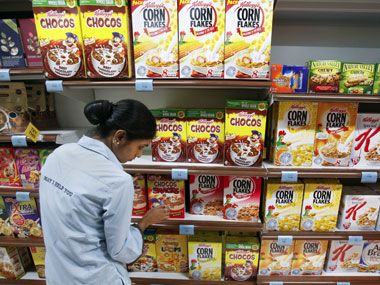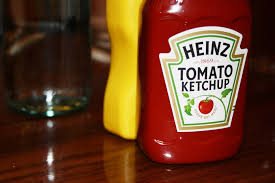The food regulator is not convinced with the answer provided by Kellogg India, it is learnt
 At a time when a controversy over whether Maggi is safe is still on the boil, questions have been raised on labelling and branding of some other popular packaged food products.
At a time when a controversy over whether Maggi is safe is still on the boil, questions have been raised on labelling and branding of some other popular packaged food products.
Food Safety and Standards Authority of India is learnt to have asked multinationals including Kellogg and Heinz to give a scientific justification on the way some of these products are labelled, marketed and sold.
Complan Pista Badam is one such product.
An official at the food regulator under the Union health ministry noted while the packaging prominently displayed pista (pistachio) and badam (almonds), these dry fruits are minimally present in the product.
Ingredients listed on the pack show almonds at 0.4 per cent and pistachio at 0.3 per cent.
‘How can you sell it as a pista badam drink when almond and pistachio content is so low’ is the question that Heinz, which owns Complan in the country, has been asked.
Another Heinz product under scrutiny is Heinz’s easy-to-cook baked beans.
FSSAI’s objection is the packaging claims it’s a low-sugar product but the nutrition details on the tin show sugar at 4.7 g in every 100 g.
Half a can of the baked beans, the ideal serving for a person, has 9.8 g of sugar.
(A can weighs 415g.)
According to the regulator, if it is referred to as a low-sugar product, it is tantamount to misleading the customer through inaccurate representation on the pack.
Abhishek Arora, whole-time director at Heinz India, confirmed FSSAI had sought an explanation on packaging.
The company’s in touch with the regulator to provide a clarification on the current packaging.
“Since it pertains to the regulatory framework, we are unable to offer any more clarifications but Heinz is committed to follow regulatory standards as have been prescribed or that has evolved over the time,” Arora said.
Breakfast cereal major Kellogg has also been sent queries for its new variant -- Kellogg’s Oats and Honey.
Yet to hit the stores in the country, the oats and honey brand is facing questions over why it should be referred to as a weight-management cereal.
There’s sugar, not at the negligible level, as well as honey in it, an FSSAI official said. ‘How can it manage weight with so much sugar?’
Internationally, ingredients listed on Kellogg’s Oats and Honey packs show sugar at eight gm and two per cent or less honey, besides whole grain, wheat, bran, oats, milled corn, etc, according to the US website of the company.
A Kellogg India spokesperson confirmed it had received a query from FSSAI.
“As a routine part of the product approval process, we have received a query from FSSAI and we have provided specific scientific explanation as appropriate.
 However, the food regulator is not convinced with the answer provided by Kellogg India, it is learnt.
However, the food regulator is not convinced with the answer provided by Kellogg India, it is learnt.
According to top FSSAI officials, around 60 per cent of product applications are now coming for health supplements, special dietary products and nutraceuticals, while proprietary food items constitute just about 30 per cent of the total. Protein powder and energy drinks are among the fast-moving products.
It is in these categories that there’s a rising concern of unapproved products being in the market.
In fact, in a marathon meeting with state food commissioners on Thursday, FSSAI discussed this too, among other big-ticket items such as the Maggi controversy.
Others facing the heat
- Complan Pista Badam displays pista (pistachio) and badam (almonds). However, almonds constitute only 0.4% and pistachio only 0.3%
- Heinz’s baked beans packaging claims it’s a low-sugar product but the nutrition details on the tin show sugar at 4.7g in every 100g
- Kellogg’s Oats and Honey, yet to hit the stores, is facing questions over why it should be referred to as a weight-management cereal when it contains both sugar and honey in it
Product applications share
- About 60% coming for health supplements, special dietary products and nutraceuticals
- About 30% coming for proprietary food items, or foods that have not been standardised under FSS act/regulations
FSSAI says protein powder and energy drinks are among the fast-moving products.
It is in these that there’s a rising concern of unapproved products being in market.












 © 2025
© 2025